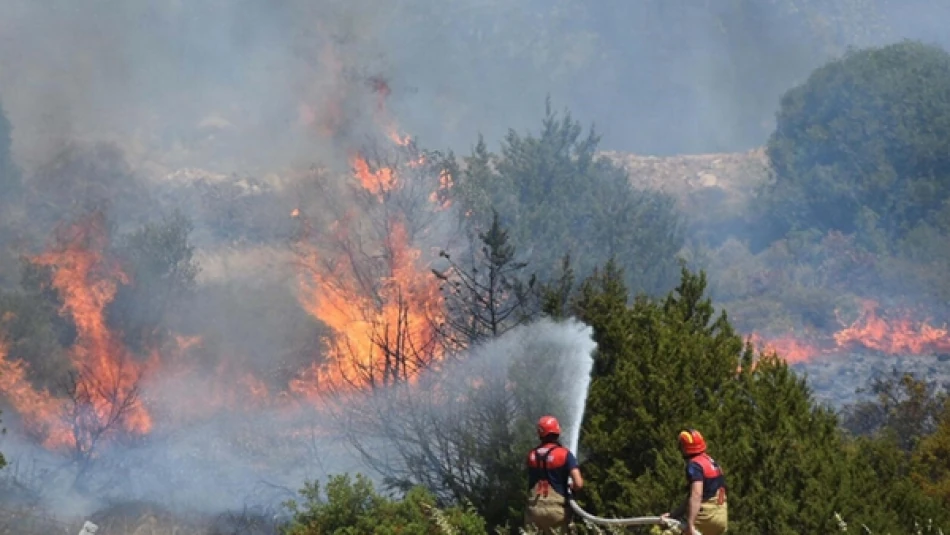
Scorching Flames Ravage Turkish Forests as Temperatures Soar
Turkey Battles Dual Wildfire Crisis as Climate Pressures Mount
Turkey is confronting a dangerous escalation in wildfire activity, with a second major blaze erupting in Bursa province over the weekend while firefighters continue battling a massive four-day inferno in northwestern Karabük. The simultaneous fires have forced the evacuation of over 1,300 residents and highlight Turkey's growing vulnerability to extreme weather events that are becoming increasingly common across the Mediterranean region.
Bursa Fire Threatens Residential Areas
The latest fire broke out Saturday evening in western Bursa province, spreading rapidly due to dry conditions and strong winds that have become characteristic of Turkey's fire season. Transport Minister Abdulkadir Uraloğlu confirmed that approximately 1,300 people were evacuated from threatened residential areas as flames advanced toward populated zones.
The evacuation extended beyond human residents, with authorities also relocating animals from a local shelter—a detail that underscores the comprehensive nature of the emergency response and the fire's broad geographic impact.
Massive Emergency Response Mobilized
Turkey's firefighting apparatus has deployed significant resources across both active fire zones. In Bursa alone, 500 ground personnel are working to contain the blaze, supported by helicopter and aircraft operations conducting aerial water drops and fire suppression missions.
The scale of the response reflects lessons learned from previous devastating fire seasons. Istanbul's fire department has dispatched seven fire trucks to assist in Bursa, demonstrating the cross-regional coordination that has become essential for managing Turkey's wildfire challenges.
Four-Day Battle in Karabük Continues
While attention turns to the new Bursa fire, firefighters are still working to extinguish a massive blaze that has raged for four days in Karabük province. This fire has proven particularly destructive, forcing the evacuation of 14 villages and consuming vast areas of forest and rural land.
The persistence of the Karabük fire illustrates how challenging these blazes have become to control, even with modern firefighting techniques and equipment.
Turkey's Growing Fire Risk
These simultaneous fires represent more than isolated incidents—they signal Turkey's increasing exposure to wildfire risk driven by climate change. The country has experienced several devastating fire seasons in recent years, with 2021 marking a particularly catastrophic period when fires killed at least eight people and destroyed thousands of hectares of forest along the Mediterranean coast.
Turkey's geographic position makes it especially vulnerable to the type of hot, dry, windy conditions that fuel rapid fire spread. The country sits at the intersection of European and Asian weather systems, creating complex meteorological conditions that can quickly turn manageable fires into regional emergencies.
Regional Context and Future Implications
Turkey's wildfire challenges mirror those facing other Mediterranean countries, from Greece to Spain, where fire seasons are becoming longer and more intense. However, Turkey's rapid urban development in fire-prone areas has created additional risks, as seen in the Bursa evacuation where flames directly threatened residential zones.
The government's substantial emergency response—involving hundreds of personnel, aircraft, and cross-regional resource sharing—demonstrates both the seriousness of the threat and Turkey's commitment to protecting lives and property. Yet the recurring nature of these major fire events suggests that longer-term adaptation strategies, including land-use planning and forest management reforms, will be essential for reducing future risks.
Most Viewed News

 Layla Al Mansoori
Layla Al Mansoori






